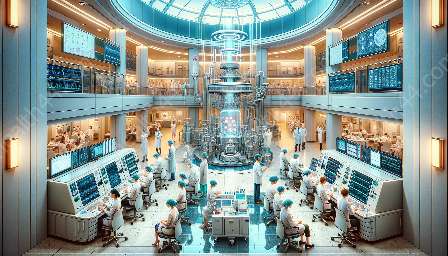Drug development is a complex and multi-faceted process that intersects with clinical research and relies on the support of health foundations and medical research. It involves a series of carefully orchestrated steps, from initial discovery to clinical trials and regulatory approval. This topic cluster explores the interplay of drug development, clinical research, and the vital role of health foundations and medical research organizations.
Drug Development Process
1. Discovery and Preclinical Research: Drug development typically begins with the identification of a potential drug target, which is often a molecule or biological pathway associated with a specific disease. Researchers then conduct extensive preclinical studies to assess the safety and efficacy of potential drug candidates. This phase involves in vitro and animal studies to gather essential data before moving to human trials.
2. Clinical Research and Development: Once potential drug candidates have demonstrated safety and efficacy in preclinical studies, they progress to clinical trials. These trials are conducted in several phases and involve human participants to evaluate the drug's safety profile, dosage, and effectiveness. Clinical research plays a pivotal role in understanding how a drug behaves in diverse patient populations, identifying potential side effects, and optimizing treatment regimens.
3. Regulatory Approval: Successful completion of clinical trials paves the way for regulatory submission, where extensive data is reviewed by health authorities to assess the drug's safety, efficacy, and quality. This rigorous process requires close collaboration with regulatory agencies to ensure compliance with stringent guidelines and standards.
Clinical Research and Drug Development
Clinical research is intricately linked with drug development, providing the scientific evidence necessary to support the safety and efficacy of new medications. Through well-designed clinical trials, researchers gather critical data that informs treatment guidelines, advances medical knowledge, and ultimately benefits patients. The collaboration between drug developers and clinical researchers is essential for translating scientific discoveries into tangible healthcare solutions.
1. Translational Research: Clinical research bridges the gap between laboratory discoveries and practical applications in patient care. It involves translating findings from preclinical studies into clinical trials, transforming theoretical insights into real-world medical interventions.
2. Patient-Centric Focus: In the realm of drug development, clinical research places patients at the forefront, prioritizing their safety, well-being, and treatment outcomes. Rigorous adherence to ethical principles and patient-centered methodologies is integral to conducting meaningful and impactful clinical trials.
Contributions of Health Foundations & Medical Research
Health foundations and medical research organizations play a crucial role in advancing drug development by providing funding, expertise, and infrastructure to support innovative research initiatives. These entities are dedicated to accelerating the pace of scientific discovery and fostering collaborations that drive breakthroughs in medical treatment options.
1. Funding and Grants: Health foundations and medical research organizations provide essential financial support to enable the exploration of promising drug development avenues. Their investments fuel innovative research projects, helping to uncover novel therapeutic strategies and potential cures for debilitating diseases.
2. Infrastructure and Expertise: By establishing research facilities, promoting interdisciplinary collaboration, and cultivating a vibrant scientific community, health foundations and medical research organizations create an environment conducive to productive drug development endeavors. Their expertise and infrastructure support catalyze meaningful advancements in the field.
3. Advocacy and Education: Beyond financial assistance, health foundations and medical research organizations advocate for policies that promote scientific excellence, public awareness, and the importance of sustaining a robust research ecosystem. They also contribute to educational initiatives that cultivate the next generation of researchers and healthcare professionals, nurturing an environment of continued innovation.


